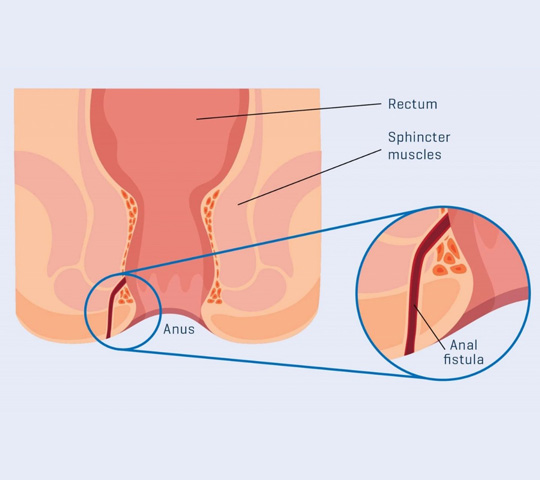The anus is a part of the human body where stool or waste matter is excreted. Now when a tunnel of epithelialized tissue forms between the skin and the muscular opening of the digestive tract (anus), the medical condition is called anal fistula. The infected area appears as a boil and is filled with pus which has a foul smell. In severe fistula conditions, pus leaks out of the tunnel.
In 50% of cases, anal fistula may recur, meaning it may be the result of a previous fistula. At Dr. Neha Muttha Clinic, we provide the Best Fistula Treatment in Pune. Depending on the severity of the fistula, you can also get fistula treatment without surgery at our center in Pune. However, if you require surgical treatment, Dr. Neha Mutha is one of the most expert, trusted, and ethical Fistula Specialists in Pune. He is the best surgeon and expert in treating Complex Fistula with Laser Treatment. She has successfully performed more than 1000 successful anal fistula surgeries. We provide the best treatment to our patients, to know the cost of Fistula Laser Treatment, you can contact us.

